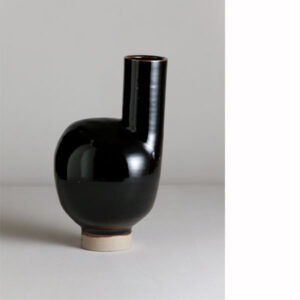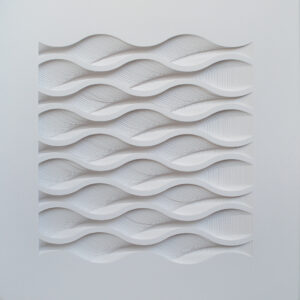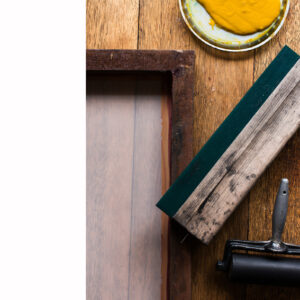mdby……TORTUS COPENHAGEN
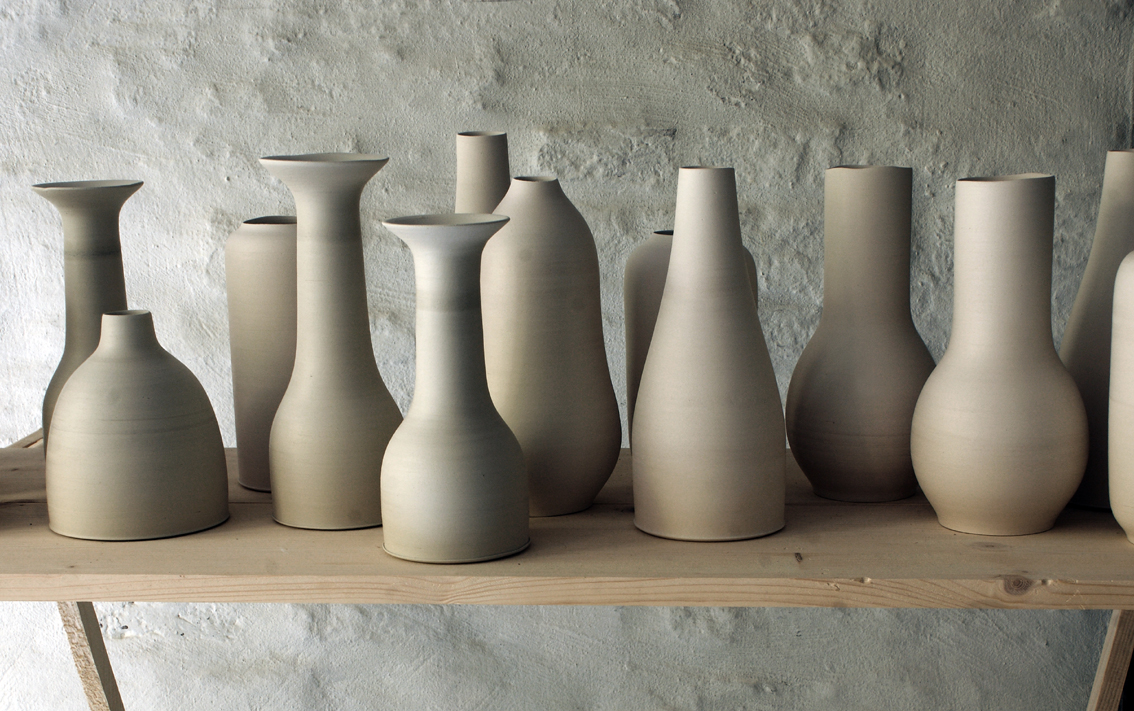

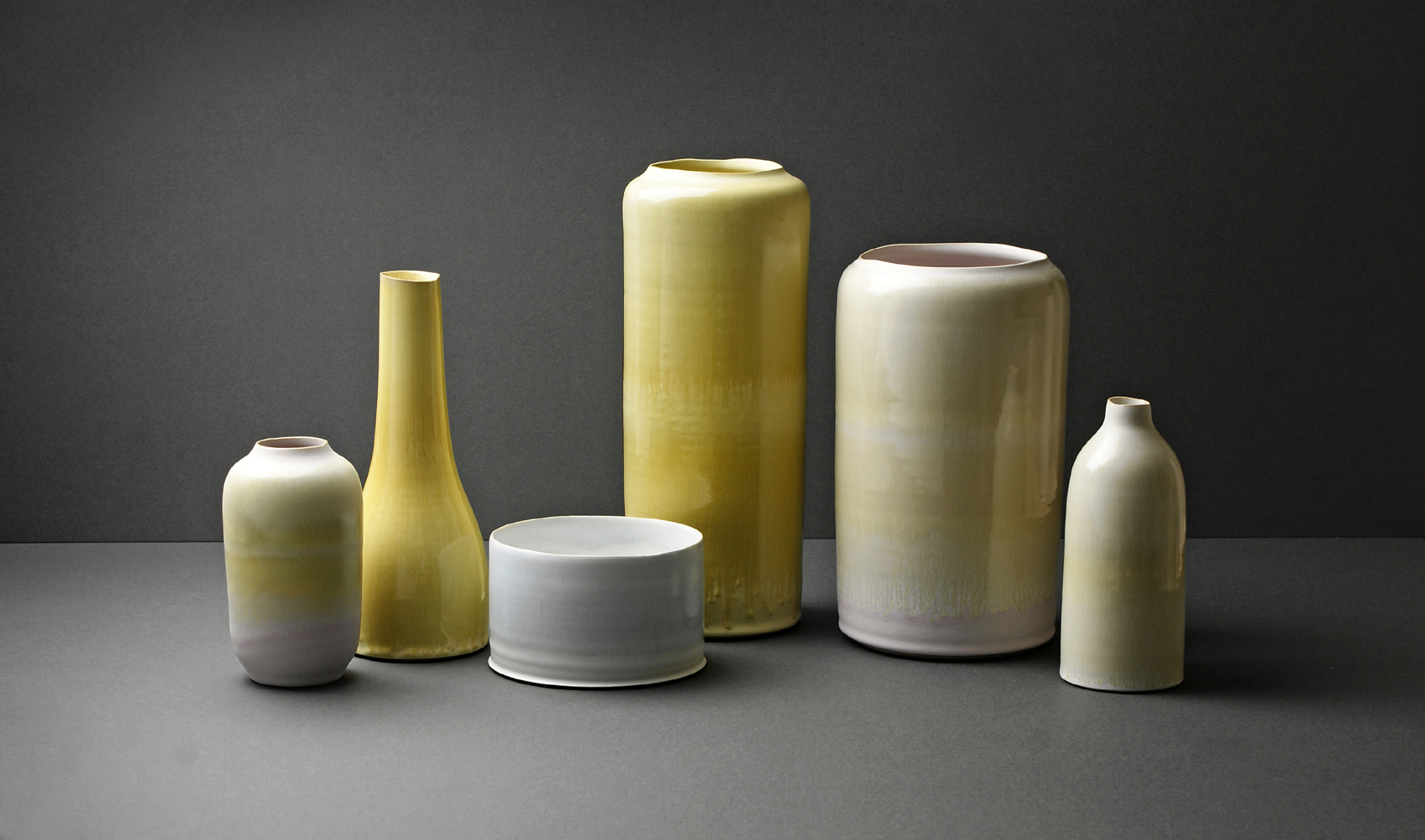


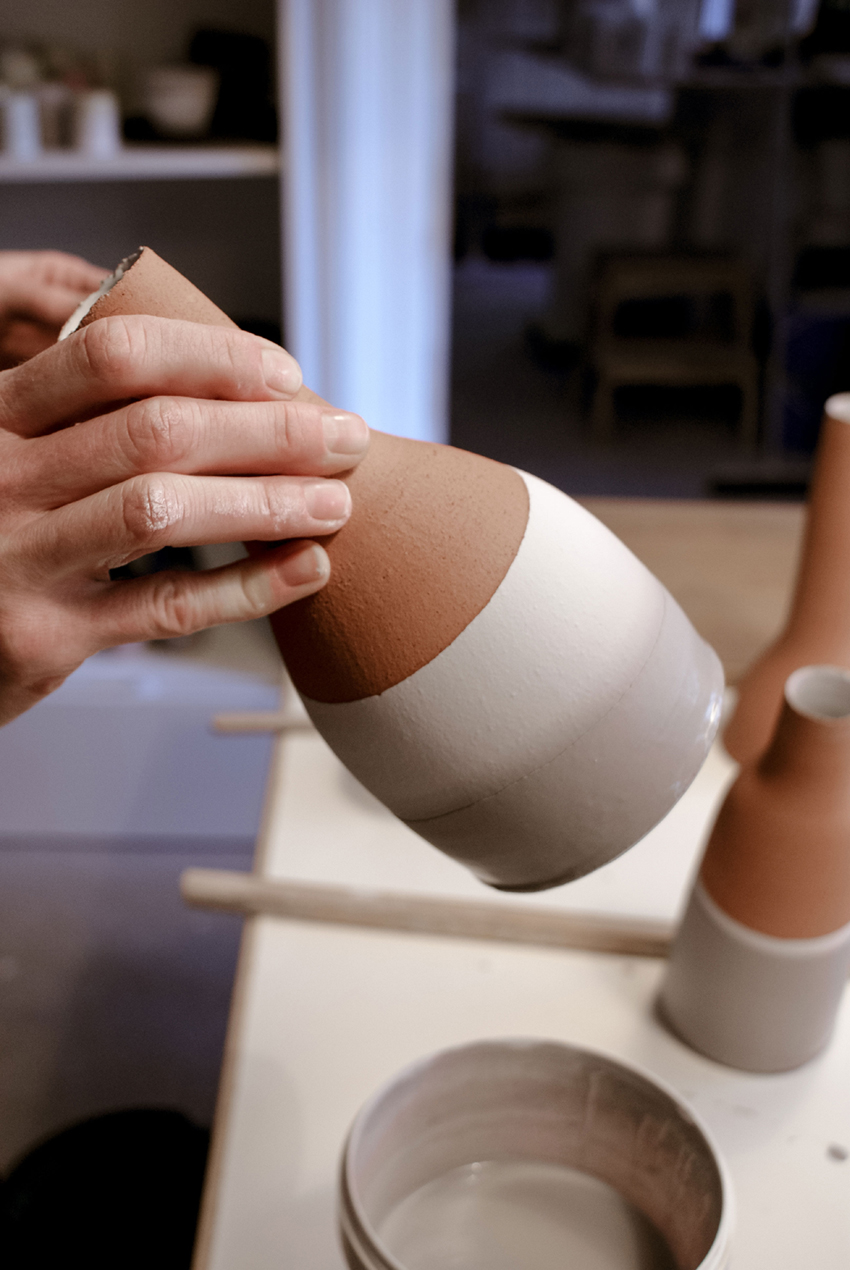

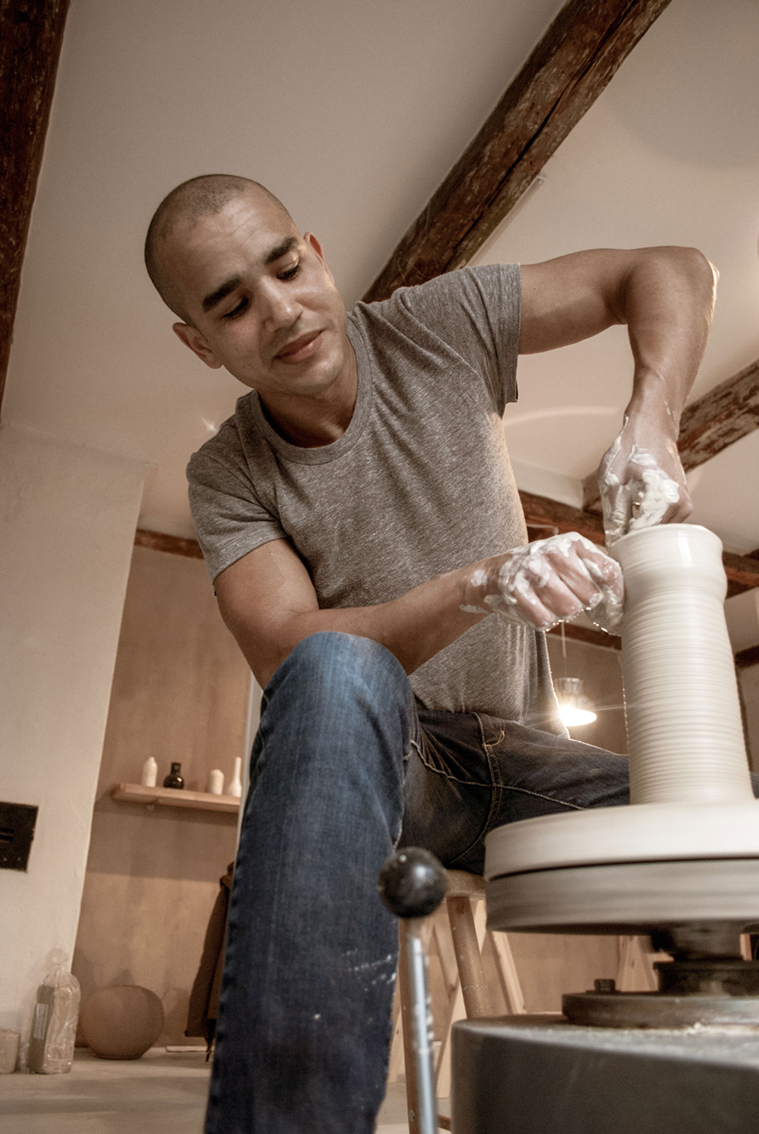
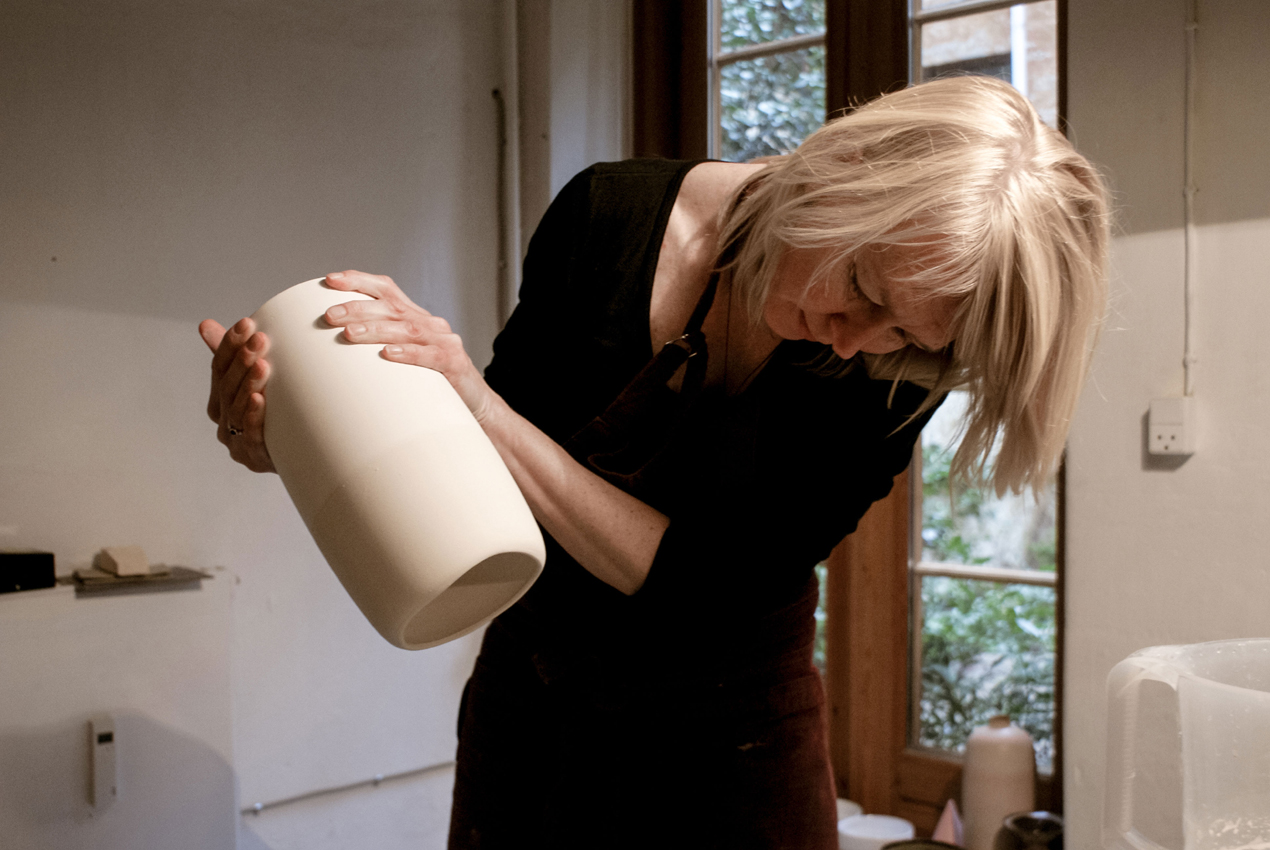
I love making this interviews and getting to know each artist’ world…today, i show the work of TORTUS COPENHAGEN, great ceramists, who believe that value begins with the mastery of making!!
You make a great team, and you can see it through your designs, how did you begin?
We met at a craftsmarked 2 years ago. I knew the fine stoneware ceramics by Eric, Eric spotted the glaze surface on my ceramics and from there we started our dialogue around our handmade ceramic
Was it hard at the beginning?
The beginning is the exciting part as all ideas seems possible, a time with tension and expectations for the future. From the start we had a lot of positive response to our work which in itself is a great motivation
How do you work, Eric and Karin over one object at the same time? Do you design it together, and make different works each one over the piece?
Both, but the work is mostly split up between the making on the wheel and the glazing, naturally we discuss the details of the thrown shapes and what type of glazes we want for the specific project. In general we include both of our philosophy and style in the final pieces. We work in separate studios in Copenhagen, so although we like to be involved in all processes we also need to split up to use our workforce.
In you “Unika” products you use different colors, making color degradations outside and even more remarked inside, which is the concept you follow for it?
I use the colors as a source to show the soft qualities and textures of clay and glazes. The glazes can be mixed and change structure when two or more glazes are used together and the graduation of the (added) colors come natural depending on the viscosity of the glaze.
The effect of one color seems strongest when I combine several colors together. We use classic thrown shapes and various types of clay, then select colors that either follow or go against of what you normally expect of stoneware clay.
What do you express through colors?
I use colors to build up an atmosphere around the objects/ceramics
The fact that we are able perceive color is fascinating, light is crucial of how we use colors and which colors we choose to define the details in our surroundings. How we perceive colors seem to be individual, colors affect or express our senses, memory and well-being in general.
Your “Fluted” series looks more serious, but it is very attractive because of its texture and color. But there is a great contrast with “Unika” series, is a work evolution?
It´s all connected. “Fluted” might be a contrast to the glazed objects but the strong organic shapes remain in both the “Fluted” and the “Unika” series. Eric developed his own and very exact technique for the fluted series and the contrast/difference is in the making. Every touch by the hand on the “Fluted” vessel will be shown on the surface, when using the glazes you can hide little “mistakes” left in the surface.
To use the natural colourscales of the clay is a great advantage with clay – it works on its own if unglazed and also with glazes as the claytype/colour effects the glaze.
Do you design all your objects before you begin to create them? Or you have the idea in mind, and you just work with the material?
We both work directly with the clay, from an overall idea. During the making we give special attention to the details and the finish which makes each piece different.
Do you have to make several prototypes with them, to get the final shape, or you give them some freedom?
Years of experience makes the production flow more freely. As we emphasize variations in each series of vases we appreciate the differences rather than the similarities
Which is process, since you make a first draft, and you make a prototype, which is the process until it is ready to be sold?
All pieces are made on the wheel and stand for some days to dry before we fire them 1 time. After 1 firing the pieces are ready to be dipped in the glaze. The glazefiring takes between 10-12 hours and approx. 1 day to cool down again.
For whom you fabricate these pieces? Do you ever imagine the final client?
They are for everybody who loves good craftmanship and chic ceramics.
Do you fabricate for special commissions?
We make for special orders or exhibitions
Which ones are your sources of inspiration?
My interest for colors was awakened when I found a color-card by a old British paint company – I had kept it for years and always liked their selection and palette of muted colourtones. This made me start testing colors in my glazes. I like to look at the past for inspiration, and keep getting back to the period of start/mid 20th cent., a period towards modernism with changes in our society and within the arts and crafts movements.
I really like your images that you have in your web, do you take them?
All images are taken by Tortus
What is beauty for you?
Beauty is essential and everywhere whenever we need it, in light or heavy doses. Beauty can be spectacular or discrete/modest impressions of passing moments.
What is the most difficult and the one you like more in your work for each of you?
The making process can be long, so opening the kiln with brandnew pieces is almost like a ritual, hoping to find the holy grail:)
and passing a well made piece to a new happy owner is a nice reason to make a new one. Difficult thing is to make decisions about a finished object; should this be “repeated in Plural” or should it remain as a one-off. If you have made the perfect object, why try to remake it when you have already proved the perfect one. If you remake it how should it then be improved.
Which one has been your biggest success?
As we are a young/new started company the beginning has been a success – hope it continues like this.
Which is your biggest dream for the future?
My dreams right now for the future are in my modest dreams of the present. Right now I just want to enjoy the moments of making in the studio.
